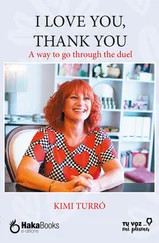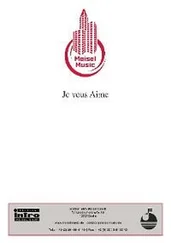Kaitlyn Greenidge
We Love You, Charlie Freeman
For Ariel
and Samuel
and Ariel
“This car doesn’t feel like ours,” I said.
“Well, it is now,” my father replied. “So get used to it.”
Outside of the car it was dark and hot and early morning August in Dorchester. Through the crack of the window, I could smell every part of the city — every slab of asphalt, every rotting plank of wood siding, every crumbling stucco wall, every scarred and skinny tree — I could smell all of it beginning to sweat.
I sat back in my seat. I knew I was right. Our old car was a used silver Chevy sedan, a dubious gift from my uncle Lyle, a mechanic. The Chevy’s backseats were balding, the foam cushions peeling with faded stickers from some long discarded coloring book. The Chevy’s body slumped over its axis, slung way too low to the ground, so that when you opened the car’s doors, their bottoms scraped the curb.
The new car was a 1991 silver Volvo station wagon, next year’s model. The Toneybee Institute paid for it. It had a curt, upturned nose that looked smug and out of place beside the lazing sedans and subservient hatchbacks parked on our block. Being inside the Volvo felt like we were in public. None of us could bring ourselves to speak. We were all too humbled by the leather interiors.
My mother, in the driver’s seat, adjusted her rearview mirror. My younger sister, Callie, kept playing with the automatic windows until my mother told her to stop. Up in the front seat, my father tugged on his fingers one by one, trying to crack his knuckles, but the cartilage wouldn’t break. I shifted my legs, and the leather skin of the seat stuck to the backs of my thighs, made a slow, painful smack as I leaned forward.
“They know we’re no good with animals, right?” I moved again and the leather creaked beneath me. “I mean, you told them that?”
“What are you talking about?” My mother rolled down her window, began to fuss with the driver’s side mirror. “We’re great with animals.”
“We are not. We’re terrible with pets.”
“Well, that’s fine because we won’t have a pet.” My mother had been saying this for weeks. “Charlie isn’t a pet.”
“He’s a research monkey,” my father added.
“He’s a chimpanzee.” This was Callie.
“He’s more than a pet,” my mother corrected. “He’s going to be like a brother to you.”
My father said, “That’s going a bit far, Laurel.”
“What I’m trying to say,” she began, “is that we just have to treat him like one of us. Like he’s part of our family. We just have to make him feel like he’s one of our own and he’ll do fine.”
“But all our pets die.”
“Charlotte.” My mother was scanning the street now.
“It’s true. That rabbit you bought me when I was five and Callie was born.”
“He was depressed.” My father turned in his seat. “It was because we kept him under the kitchen counter.” My father had a notebook open in his lap, the pages turned to the start of a geometry lesson plan, but he hadn’t written anything yet. Over his shoulder, I could see where he’d drawn a grove of interlocking pineapples in the sheet’s margins.
“In our defense,” my mother said, “we had to keep him there. We just didn’t have the space.”
She tugged at her side mirror again. She frowned, made an appreciative “ah,” and rolled her window back up. She touched a button on the dashboard, and the mirror gave a delicate little shudder and began to angle itself toward her.
She glanced over at my father, grinned.
“Very nice,” he said.
I stuck my head in the space between them. “That rabbit died because he ate his own fur. He choked on it. He died because he choked on himself .”
“Is that true?” Callie strained against her seat belt, trying to catch what we were saying.
“No.” My mother swatted at me. “Charlotte, get back there, get back in your seat. Put your seat belt on. You’re upsetting your sister.”
We didn’t even have seat belts in the old car. I ran mine across my chest, clicked the buckle closed.
I waited.
Then I said, “Dad’s fish.”
My mother shot me a warning glance in the rearview mirror.
“Dad was in charge of the fish and it still died.”
No one answered me.
After a while I said, “And it didn’t even die. It just kind of flaked away.”
“I think I’m going to be sick,” Callie moaned.
“He had mange.” My father turned again in his seat, trying to catch Callie’s eye. “I’ve told you this before. He already had it when we brought him home from the pet store.”
But I persisted. “Mom had to take that fish out of the tank and put him in a paper bag and bury him at the park because he was so messed up he would have polluted our toilets. We made a fish too sick for a toilet .”
“I’m going to be sick,” Callie declared.
“Charlotte, no talking.” My mother leaned forward and switched on the radio and a too deep voice intoned, “W-I–L-D Boston.” That station was at the top of the list of things that my mother forbade us. “Nothing but booty music,” she’d say, a dismissal that made me and Callie squirm in embarrassment. Now, though, she turned the volume up until the sound buzzed over us, drowning out our words.
My last piece of evidence I signed to Callie underneath the stutter of a drum machine. The mice , I explained with my hands. We had mice and they died of heart attacks because they mated too much. They fucked— and here I spelled it out because I didn’t know the sign for that yet— they f-u-c-k-e-d to death .
How did they do that? Callie signed back.
I shook my head and turned my face to the window.
We drove past the clapboard double-deckers of our block, the high stoops overlaid with deciduous piles of supermarket circulars and candy bar wrappers and petrified, heat-stiffened leaves. We passed the restaurants my mother hated and banned: the Chinese food spot and the fried chicken spot and the Greek pizza parlor with its burnt-faced pies and the Hilltop Corner Spa, a grocery that sold milk only in cans and reeked of ancient fry oil and greasy mop water. We passed the check cashing spot on the corner.
By the time we got to the turnpike, we were the only car on the road. Dawn was over, the sun was high, and we were hot. It did not occur to any of us to turn on the air-conditioning; it had never worked in our old car. The Chevy’s vents just shuttered and coughed and panted out something like secondhand smoke. When my father thought to flick the switch in the Volvo, we were all pleasantly surprised by the steady breeze that floated around us, cool and fresh, not a hint of nicotine.
We were going west, past empty fields and aluminum-sided barns and an alfalfa farm with a sweet scent that filled the car as we approached, then spoiled into the stink of manure as soon as we passed.
My mother, at the wheel, only scanned the road ahead, ignored the green.
Three months before, she and my father had sat us down and informed me and Callie that we were lucky. That we were about to embark on a great adventure. That we might even make scientific history. We had been chosen, over many other families, families with children who weren’t half as smart as we were, who didn’t even know how to sign. We, the Freemans, had been chosen to take part in an experiment and we were going to teach sign language to a chimpanzee.
“It’s all to see what he can sign back to us,” my mother said. Her voice was not her own. It was usually measured, weighted. But now it swooped high and went giddy, a little breathless, as she explained, “It’s to see what he might say.”
Читать дальше
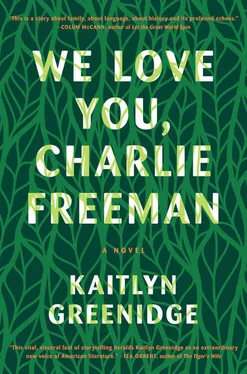





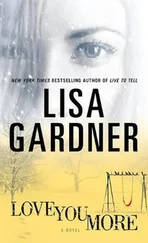
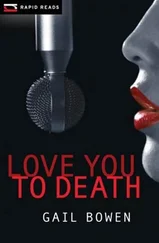
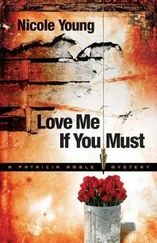

![Ally Carter - [Gallagher Girls 01] I'd Tell You I Love You But Then I'd Have to Kill You](/books/262179/ally-carter-gallagher-girls-01-i-d-tell-you-i-lo-thumb.webp)
